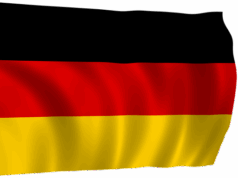Hazelnut production in Chile is booming. 95 percent of Chilean hazelnuts were exported to Italy last year, according to figures from the Chilean Ministry of Agriculture. The main customer is Ferrero, with more than half of its products containing hazelnuts, including the popular Nutella nougat cream.
Most Ferrero hazelnuts are grown in Turkey and Italy. But the importance of Chile as a country of production is growing. „We want to further expand production in Chile and turn the country into one of Ferrero’s main suppliers,“ said Hazelnut Company manager Lucio Gomiero in 2015 to the Chilean newspaper „El Mercurio“.
Ferrero settled in 1991 under the name Agrichile in the South American country. One advantage is that Chile is summer, while winter is in the northern hemisphere. According to the company’s website, the acreage of hazelnuts last year was 3,500 hectares, and is expected to exceed 4,200 hectares this year. The fields are located in three regions in southern Chile: El Maule, Biobío and La Araucanía. Agrichile production increased by 16 percent in 2018 to 23 million tons.
Tab environmental laws in Chile
One reason for the rising production of hazelnuts in Chile is probably the lax environmental legislation. The lack of regulations on the use of pesticides makes farming more cost effective and efficient. On the hazelnut plantations, the probably carcinogenic glyphosate is used. Agrichile is also suspected of using the toxic pesticide paraquat. Paraquat was developed by the English company Imperial Chemical Industries, whose agricultural division today is part of the Swiss company Syngenta. In Chile, the environmental toxin is marketed by Arysta and Anasac.
Research by the Pesticides Action Network in Chile RAP (Red de Acción en Plaguicidas y sus Alternativas en Chile) warn of health problems caused by the use of paraquat such as kidney failure, respiratory distress, pulmonary pain, vision and liver damage, severe skin injuries, death and embryo damage. Paraquat is banned in the European Union, but not in Chile.
„We’ve been trying for years to get paraquat banned in Chile,“ says María Elena Rozas of the Pesticide Action Network in Chile. „But the lobby of transnational corporations is stronger, Syngenta came in with a team of lawyers and talked to the Ministry of Agriculture staff, and we were only able to reach a slight restriction, so Paraquat can no longer be used by air.“
Affected are children and women
In the US, where paraquat is also allowed, a study has proven that it can cause damage to the nervous system and Parkinson’s. Particularly affected are children and adolescents living in the immediate vicinity and women working in the fields.
University of Chile – Andrei Tchernitchin (Sophia Boddenberg)
Andrei Tchernitchin from the University of Chile
Andrei Tchernitchin is a toxicologist at the medical school of the Universidad de Chile. He examines the health effects of agricultural poisons. „Prenatal and neonatal contact with environmental toxins causes irreversible damage, during which time the hormone receptors of the cells are programmed for the rest of life, and even if the mother or child is only in contact with a chemical for a few days, the cell can be mistaken program more or fewer receptors, which causes neuronal damage when it comes to neurotransmitters or damage to your health when it comes to hormone receptors. “
In Chile, there are very few studies on the effects of environmental toxins. Therefore, the direct relationships are difficult to detect. María Elena Rozas of the Pesticide Action Network complicates the additional work. There are no studies from the Ministry of the Environment or the Ministry of Health. „The only thing Chilean politicians are interested in is economic data, they want more economic growth, but they do not care about their health or the environment,“ she says



